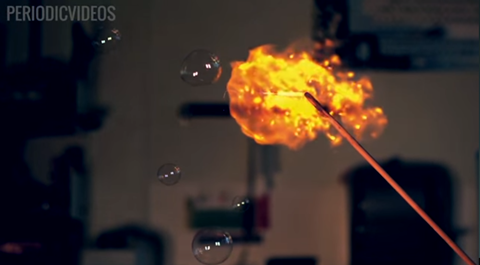Web watch: Tony Tooth looks at some websites that may be of interest to chemistry teachers
Periodic videos

The web-based interactive Periodic Table has now been taken one step further and your favourite elements can be found starring on YouTube. Brady Haran, the University of Nottingham's film-maker in residence, has filmed clips relating to most of the elements (the final 30 or so are on the way) with many introduced by Nottingham chemist Professor Martyn Poliakoff. The element symbols of the Periodic Table on the main site are linked to related video clips. Each clip is only a few minutes long and many include experiments and demonstrations done on a scale which couldn't easily be performed in a school laboratory. The videos are also available on a special YouTube channel. The passion and enthusiasm of the presenters are obvious and the content is aimed at stimulating enthusiasm for science among a wide audience, but especially GCSE students. A preview clip introducing the main site can be found on their website.
Online tests
This is a New Zealand-based site but, thanks to a collaboration with the Royal Society of Chemistry (RSC), its content is also aimed at UK A-level courses. This up-to-date site even includes material aimed at the new AS specifications and the aim is to add GCSE material within the next year. The site contains over 2500 (and increasing weekly) pages focusing on general, inorganic and organic chemistry and is designed to help students learn by reading a little and then answering lots of questions on what they have learned. AQA, Edexcel, and OCR specifications are all covered with the tests and revision notes divided up as per the topics in each specification so that students can easily be directed to appropriate material as each topic is taught. Registration is required, but is free. Teachers can also register classes and so keep track of students' performance when specific tasks are set. The site allows you to see how long a student was logged on for as well as checking how many questions they answered.
Chemistry jokes
Some of the jokes on this site are pretty terrible, but if you want a source of inspiration to make your students groan, or for some alternative wall posters, then look no further.
Contact and Further Information
Tony Tooth
If you know of any websites that should be reviewed in Education in Chemistry, please send the URL to our Web watch reviewer
Email: Tony Tooth






No comments yet